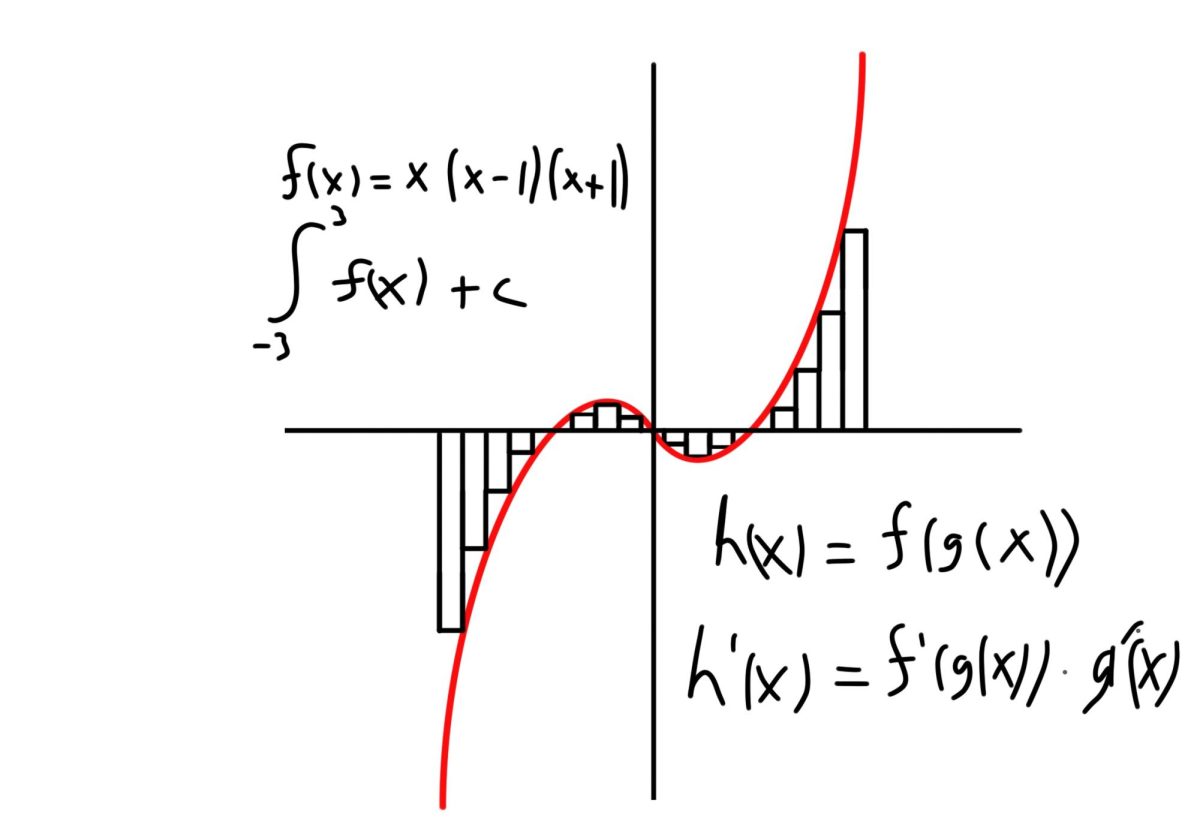Calculus has historically been regarded by many students as the final essential math class one can take at Urban. Essential for physics, data science, economics and more, calculus opens up many new doors for students to mathematically explore. However, taking the class may not always be the best course of action for everyone. As of October 2023, 59% of the current senior class is enrolled in Calculus. Why do Urban students take, or not take Calculus?
Some take Calculus because it is the next level math course to take for them. “It’s more that I don’t have a reason not to,” said Micaela Winthrop ‘25, who is planning to take the course next school year. “It just seems like the natural Urban path for people that started in Math 2. I don’t know much about it. That’s kind of been the plan.”
Others feel more comfortable in math classes. “I am definitely better at math than I am at English and history,” said Seiji Ishiguro ‘25. “[Calculus] is actually something I feel like I could take and wouldn’t be a detriment to my GPA.”
However, the choice may not be so simple for others. If a student is placed into Math 1 their freshman year and wants to take Calculus senior year, they are forced to replace one of their electives junior year with a third math – Functions, the prerequisite for Calculus.
“I’m a little bit disappointed that I wasn’t able to [take Calculus] because my middle school math program was not good,” said Jack Grasso ‘24. The reality is that a lack of preparation before Urban holds students back and prevents them from taking classes in their area of interest.
“I wish I had been able to get into Math 2 freshman year,” said Grasso. “That probably would have let me take more math classes and just more classes [I want to take] in general.”
In contrast, the multitude of classes offered to students also can serve to benefit them, even if they are forced to choose between classes.
“I’ve always had this idea since the start of high school and a big portion of my life that I want to go into something creative. And I realized that many of the majors I was looking at didn’t really require calculus,” said Grasso. “[The class] would have taken [up] a lot of time I could spend on college applications or internships and things that are more in line with my passions.”
College and the pressure to perform in school also remains a large factor influencing students to take Calculus. “I’ve been told — at least by people who are older than me like my sister [or alumni] — that Calculus really sets you up for college,” said Aidan Somaini ‘24.
While taking the class may be especially useful for science, technology, engineering and math (STEM) oriented majors, it also offers many applications to the real world. One such example is investing, where understanding the math behind calculus is useful for informing decisions in how stocks behave.
“It’s just beneficial for everyone to know more math, right?” Said Parisa Safa, math department chair. “Calculus is one of those areas of math that that kind of revolutionizes the way [we] understand the world. So it’s good to see why things work the way they do and to be able to analyze it and understand it.”
According to Somaini, there is value in trying more challenging classes at Urban, even if they are outside of a student’s immediate interests. “I think a lot of people will take Calculus [to put on]college applications, but what I didn’t really know is that it’s like a whole new world,” he said. “I find it to be totally different and refreshing. It’s kind of like this mythical beast that everyone speaks about that you have to take.”


